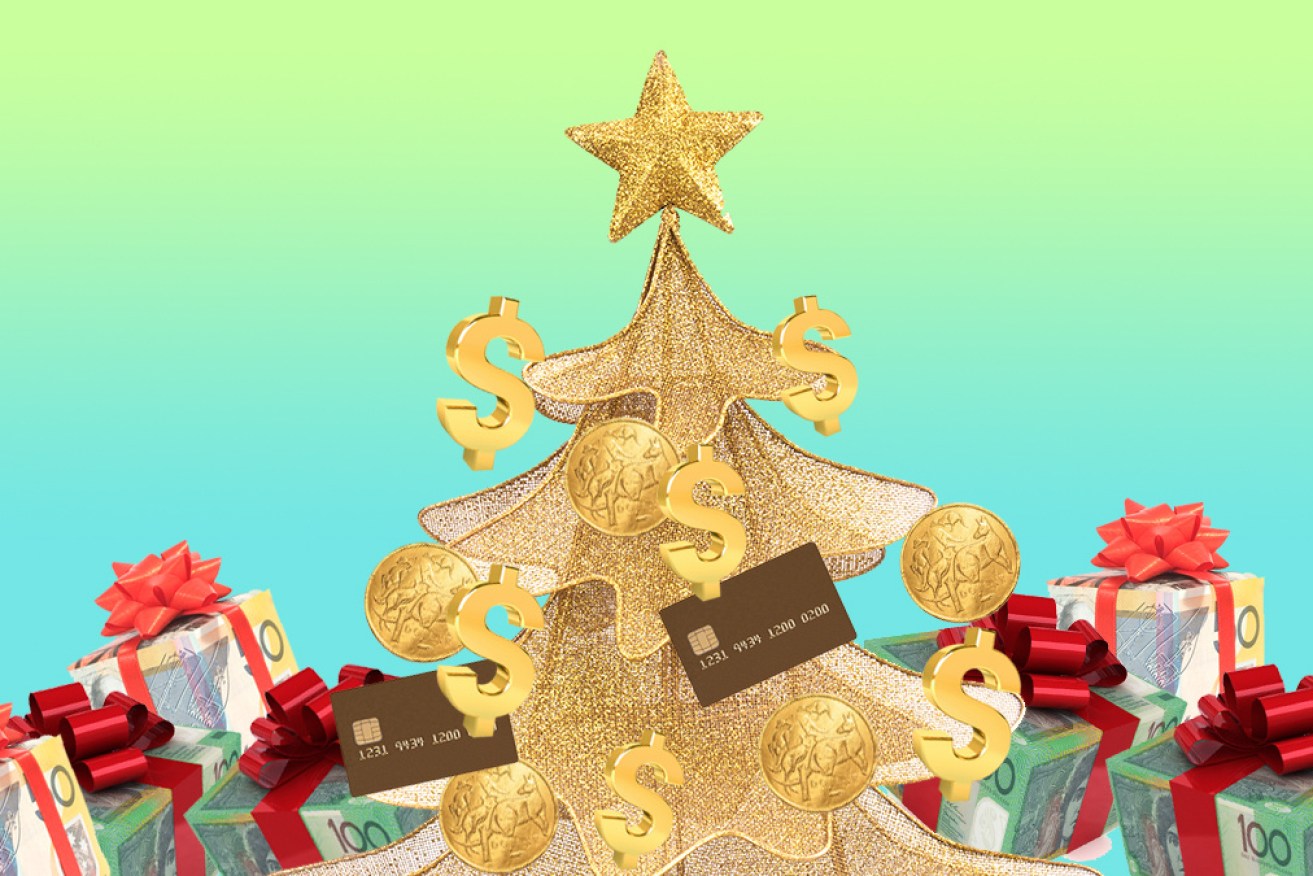Christmas shopping: How to save cash and avoid building up debt


About one in three Australians brought Christmas debt into 2021, according to Finder. Photo: The New Daily
When it comes to Christmas debt hangovers, prevention is better than cure.
If you need convincing, keep in mind that more than one-third of Australians were estimated to have carried a Yuletide debt into 2021, according to a Finder analysis of data from the central bank.
Australians borrowed about $24 billion on their credit cards last December.
But some of that could have been avoided if people set aside money in advance.
So before setting a budget and writing a list of people to buy gifts for, consider trying a Kris Kringle with your adult family and friends.
It also pays to remember that just because your friends buy their children a pile of gifts, it doesn’t mean you have to do the same.
More gifts don’t necessarily equal a happier Christmas.
The good thing is, even if you haven’t started saving for Christmas yet, you still have more than 11 weeks until the big day.
Let’s say you want to have your Christmas savings sorted by mid-December. That means you have 10 weeks to stash away some cash.
If you want to save $250 that’s $25 a week, $50 if you’re planning to spend $500, or $100 a week if you’d like to spend $1000 on gifts and celebrations.
Here are some strategies to curb your spending and boost your income.
Gift budget = $250 (Save $25 weekly)
The first thing to do is set up a separate bank account for Christmas.
Make sure you have no instant withdrawal access, and organise an automatic transfer of $25 a week into that account.
Now you need to grab the low-hanging fruit – cancel any unused or underused streaming subscriptions or gym memberships.
It doesn’t have to be forever, but just for a few months to make sure you avoid going into debt at Christmas.
Fitzpatricks Private Wealth financial planner Gianna Thomson said the key to getting into the swing of saving is to know – not think but know – exactly what you are spending your cash on every week.
She recommended writing down every expense for 28 days to get a clear picture of your spending habits.
“Bring it back to basics – let’s be a bit more mindful about our spending,” she said.
“If you can actually see where your money is going, I reckon you will definitely find some quick wins to reduce your expenditure.”
FMD Financial financial adviser Nicola Beswick said depending on your income, saving $25 a week could simply mean forgoing a weekly bottle of wine, or if you buy lunch a few times a week, leave the house but just get coffee instead.
“Make a conscious effort in the next couple of months not to spend that $10 or $20 a day on lunch … and save that money,” she said.
Gift budget: $500 (Save $50 weekly)
Food is a common area where people often spend more than they realise, and you can save money by cooking at home more and by meal planning.
Comparing prices online can be a good way to help trim your grocery bill, and consumer group One Big Switch has recently launched BigGrocerySaver.com.au, where you can find weekly prices on popular items and specials across Coles, Woolworths and Aldi.
You can also renegotiate deals on big bills like your utilities, insurance and phone plan, which can add a little extra to your hip pocket in the short term and build up into signficant savings over the year.
Gift budget: $1000 ($100 weekly)
If you haven’t done it yet, file your tax return soon so you can receive any refund you’re due before December and earmark the cash for Christmas.
In addition to cutting spending, you may be able to boost your income by doing extra work or selling unwanted items through the second-hand economy.
When it’s time to buy
Be organised and buy gifts at a discount during the Black Friday sales, which begin on November 26.
If you’re shopping online, you can save on shipping costs by purchasing multiple items from the same store.
You can also use cash-back reward programs, such as ShopBack, where you are returned a portion of what you paid for your purchase from participating stores for items including beauty products, clothing and electronics.








